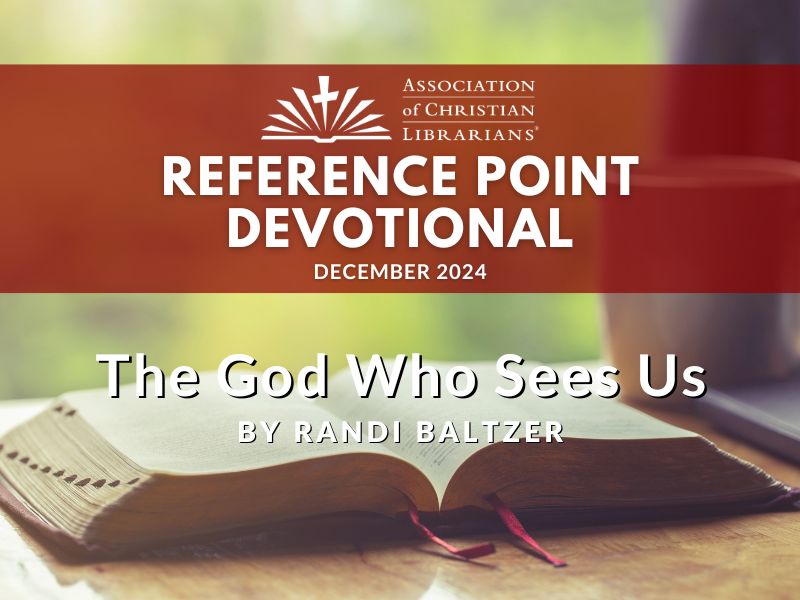“She gave this name to the Lord who spoke to her: ‘You are the God who sees me,’ for she said, ‘I have now seen the One who sees me’” (Genesis 16:13 NIV).
Being a librarian often feels like being invisible. It’s rare that people know exactly what it is we do. Many people believe librarians are two-dimensional beings that exist to shush people or who get to camp behind a reference desk and read whatever they want all day. Sometimes librarianship can feel like a thankless job. No one sees the long hours spent on cataloging, book display creation, or acquisitions. No one sees the stress of patron-librarian interactions or the frustration of trying to keep library programs afloat. We often feel unseen in our struggles and in our work.
Hagar from the book of Genesis must have felt invisible, too.
Hagar was an Egyptian servant in the household of Abraham. God made a covenant with Abraham which included the promise of a son. In Genesis 16, Hagar’s master and mistress try to force parenthood to happen their way. Rather than wait on God’s timing to fulfill His promise, Sarai takes control of the situation. Sarai, Abraham’s wife, made her servant Hagar marry Abraham.
We’re never told if Hagar was asked if she wanted to marry her master; we’re merely told she is given to him. We’re also never told Hagar’s perspective until eventually, she runs away. What we do know is that when Hagar learns she’s pregnant with her master’s child, she begins to treat her mistress poorly. Sarai then complains to their shared husband and Abraham gives Sarai permission to do with Hagar what she wants. Sarai then makes Hagar so miserable that the pregnant woman runs away.
Hagar probably thought that no one saw her pain as she trekked through the wilderness. Until she leaves her master’s house, her voice is never heard in the biblical account. But when the Angel of the Lord appears, we finally hear Hagar speak. God sees that she runs away and pursues her. He asks her why she’s left, and Hagar tells the Lord she’s running away because of Sarai.
God meets with Hagar in the wilderness. There He counsels her to return and submit to her mistress’s authority. The Lord also comforts her with the knowledge that her child would be a male and that she would be the mother of many. After this interaction, whenever Hagar refers to God, she intentionally calls Him, “The One who sees me.”
Often, we think no one sees the hard work we put into being a librarian. We try to prove our worth to people with statistics, surveys, and data, but they just don’t seem to grasp our value. We fight for our budgets or staffing needs with gritted teeth. Justifying the value of the library is something we do constantly, regardless of what type of librarianship we practice. Our hard work normally goes unnoticed by our fellow mortals, most of whom have no idea what being a librarian actually involves.
But our God is the God who sees us. God is ever-present and all knowing. Nothing passes on the earth without His knowledge, even the work of the humble librarian. And He is with us as we work, often ministering to us in ways we don’t always recognize. While we toil, doing information literacy instruction or interlibrary loans or maintaining a digital repository, we can take comfort in remembering the God who saw Hagar’s every moment is the God who sees ours. Take courage, dear brothers and sisters; He sees us too.

Randi Baltzer
Randi is the Reference and Technical Services Librarian at Arizona Christian University. She has been an ACL member since 2023 and currently resides in Glendale, AZ.


